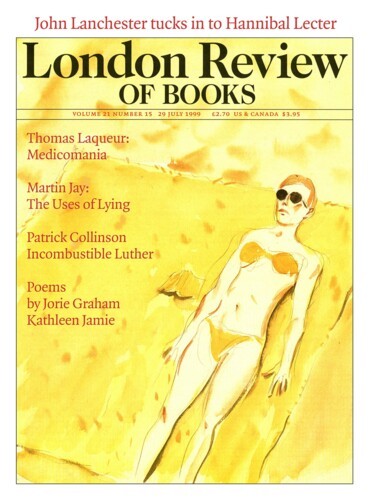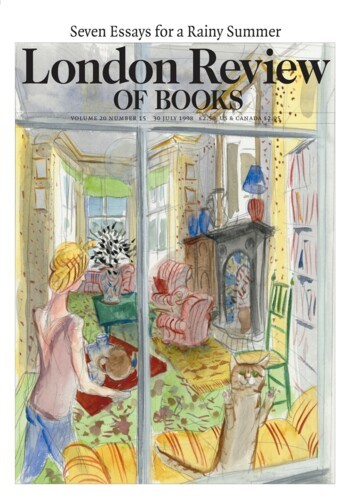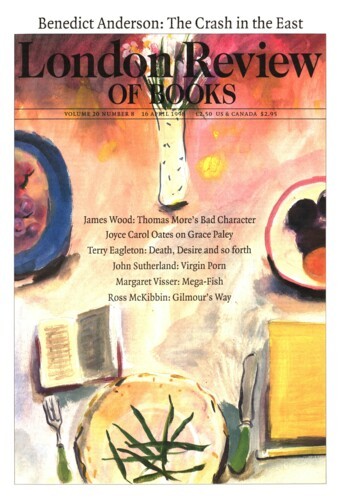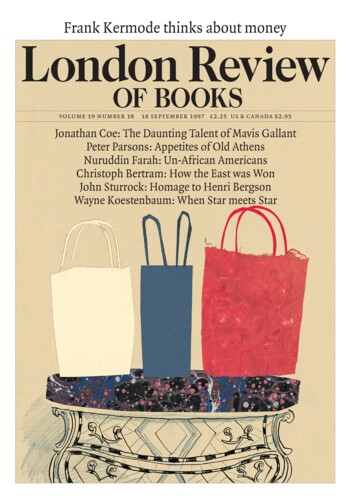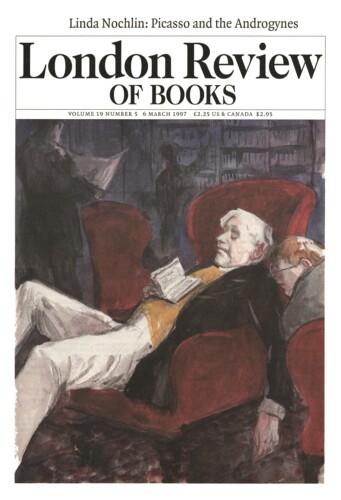Nature made the house: Barry Topez
William Fiennes, 29 July 1999
Many of the 17 ‘essays’ in Barry Lopez’s About This Life are fragments of memoir: snapshots of the day of a mother’s death from cancer; early road trips up and down America; Jesuit prep school in Manhattan; childhood years in California; a tributary career in photography. The book begins with a series of travelogues. Lopez dives the coral reef off the island of Bonaire in the Dutch Antilles, finding the patterns and colours of reef life ‘displayed like Persian rugs in glycerin hues’. He describes a trip through Hokkaido, northernmost of the Japanese islands; an expedition to McMurdo Station in Antarctica and a voyage through the Galapagos Islands. His research into the human and physical geographies of these places, their flora and fauna, the stories of their colonisation, is assiduous. His observation is acute. Inspecting the frozen corpses of Antarctic seals, he notes that ‘the peculiar cheek teeth, ornate with tiny, interlocking cusps, stand out boldly in their highly evolved but useless efficiency.’ But these pieces remain examples of high reportage, lacking the concentration and burnish of essays.‘
